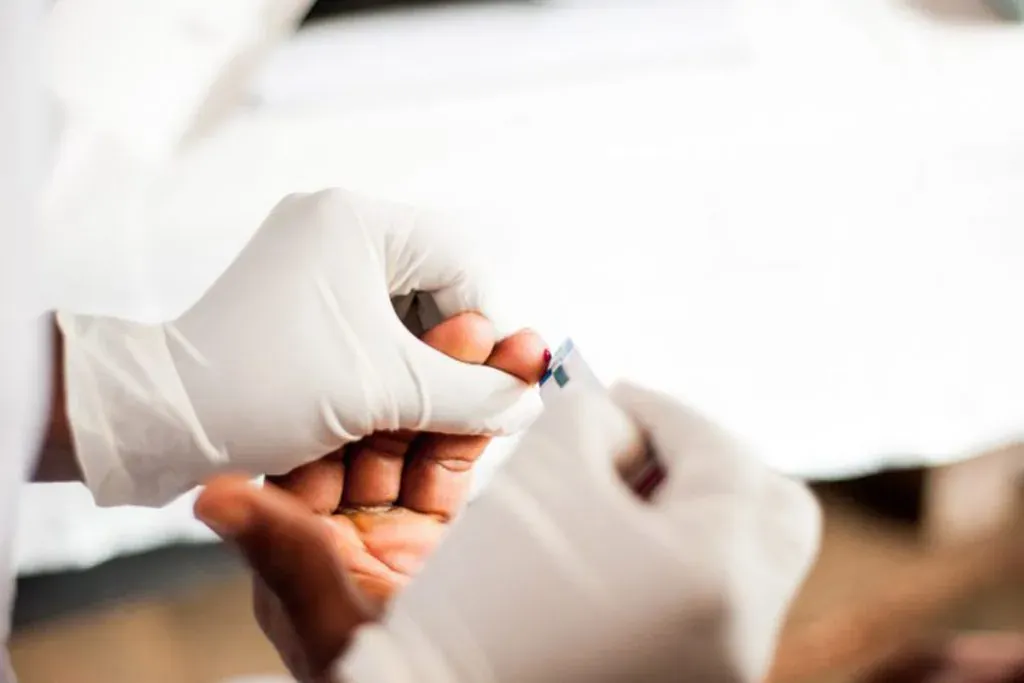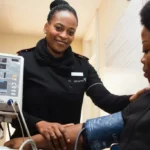HIV (Human Immunodeficiency Virus) is a virus that attacks the body’s immune system, specifically the white blood cells (leukocytes) responsible for fighting off infections. Once HIV enters these cells, it replicates, weakening the body’s defenses over time.
Early diagnosis through timely HIV testing allows individuals to access treatment that can effectively control the virus and prevent the progression to AIDS, enabling a long and healthy life.
Why is HIV Testing Important?
While some people experience initial flu-like symptoms after HIV infection (such as fever, chills, rash, night sweats, headache, sore throat, swollen lymph nodes, persistent fatigue), many may not have noticeable symptoms for years.
These symptoms can also mimic other illnesses. Therefore, relying on symptoms alone is not sufficient.
The only definitive way to know your status is through HIV testing. If you present with potential symptoms, your doctor will likely recommend several tests, including specific HIV testing, to determine the cause and make an accurate diagnosis. Early diagnosis is key to effective treatment and preventing transmission.
Understanding HIV Screening Tests
An HIV screening test (also sometimes called a retroviral test) is designed to determine your current HIV status – whether the virus is present in your body or not.
- Negative Result: Indicates that no evidence of HIV was found in the sample at the time of testing.
- Positive Result: Indicates that HIV antibodies and/or antigens were detected, suggesting an HIV infection. Positive screening tests always require confirmatory testing.
Regular HIV screening is a vital part of maintaining your health.
Types of HIV Tests Used for Diagnosis in Nigeria
Several different types of HIV tests are available and used for diagnosis and monitoring in Nigeria. They work by detecting the virus itself or the body’s response to it:
1. Nucleic Acid Tests (NAT) / HIV Viral Load
- How it works: NATs look directly for the genetic material (RNA) of the HIV virus itself in the blood. This test can also detect the p24 antigen (part of the virus).
- Use: Can detect HIV infection very early (often within 10-33 days post-exposure). It’s also used as a viral load test to measure the amount of HIV in the blood of someone already diagnosed, helping monitor treatment effectiveness.
- Note: NATs are generally more expensive and may not be the first-line test for routine HIV screening.
2. HIV Antibody Tests
- How it works: This common type of HIV test searches for antibodies produced by the immune system in response to the HIV infection. It doesn’t detect the virus directly.
- Use: Widely used for routine HIV testing in Nigeria. Can be performed on blood or oral fluid.
- Note: There’s a “window period.” It takes the body time (typically 3 to 12 weeks) to produce enough antibodies to be detected. An antibody test might not pick up a very recent infection.
3. HIV Antigen/Antibody Combination Tests (4th Generation)
- How it works: These tests detect both HIV antibodies and the p24 antigen (part of the virus itself).
- Use: Increasingly recommended for HIV testing in Nigeria as they can detect infection earlier than antibody-only tests (usually within 18-45 days for blood draws, or 18-90 days for finger pricks). They bridge the gap between NATs and antibody tests.
- Note: This combination approach offers high accuracy for screening.
Confirming HIV Type (HIV-1 vs. HIV-2)
There are two main types of HIV:
- HIV-1: The most common type globally (approx. 95% of infections) and more easily transmitted.
- HIV-2: Less common, found primarily in West Africa, and generally progresses more slowly.
Once initial HIV testing confirms a positive diagnosis, further testing like the HIV-1/HIV-2 Differentiation Immunoassay (often an antigen/antibody combo test) is needed to determine the specific type. This is crucial because treatment strategies can differ.
Who Needs Regular HIV Testing in Nigeria?
Routine HIV testing in Nigeria is recommended for everyone between the ages of 13 and 65 should get tested at least once as part of routine healthcare.
More frequent HIV screening (e.g., every 3-6 months or annually) is strongly advised for individuals with higher risk factors:
- People who share needles, syringes, or other injection equipment.
- Individuals engaging in unprotected sex (vaginal, anal, or oral) with partners whose HIV status is unknown or positive.
- Men who have sex with men.
- Pregnant women (testing is a standard part of antenatal care).
- People diagnosed with other Sexually Transmitted Diseases (STDs).
- Individuals with tuberculosis (TB).
- Anyone who has experienced sexual assault.
What to Expect During the HIV Testing Process
The HIV test process can vary slightly depending on the setting and test type:
- Rapid vs. Standard Tests:
- Rapid Diagnostic Tests (RDTs): Often used for initial HIV screening. They provide results within minutes (usually under 30). Most RDTs are antibody or antigen/antibody tests. They can be done in clinics, community settings, or even with self-test kits. Positive RDT results always require confirmation with a standard lab test.
- Standard Lab Tests: Samples (usually blood) are sent to a laboratory. Results typically take longer (hours to days). These are used for confirmation and for tests like NAT/Viral Load.
- Sample Collection:
- Blood: Can be a finger prick (for some RDTs) or a blood draw from a vein using a needle.
- Oral Fluid (Saliva): Some antibody tests use a swab rubbed along the gums. Note: These test oral fluid, not saliva itself.
- Urine: Less common for HIV testing.
- Risks & Preparation: The main risks are minimal discomfort or slight bruising from a needle stick. Generally, no special preparation is needed before HIV testing. Feel free to ask your healthcare provider any questions you have.
Convenient HIV Testing with HealthTracka
Knowing your HIV status is empowering and essential for your health and the health of others. Not testing is not an option.
HealthTracka offers confidential and convenient STI testing in Nigeria, including the crucial HIV-1/HIV-2 Differentiation test. Our service allows for hassle-free at-home sample collection by trained professionals.
Take control of your health information today. Book an HIV test with HealthTracka.




